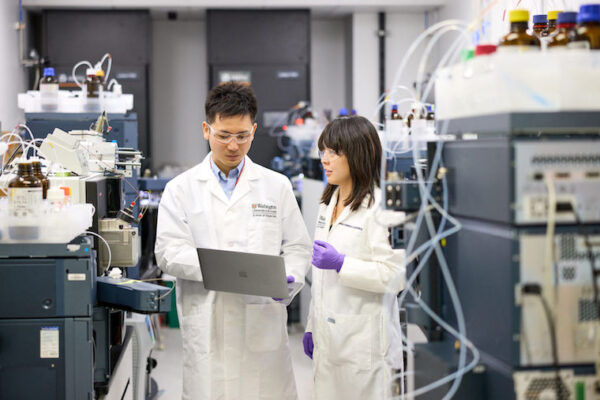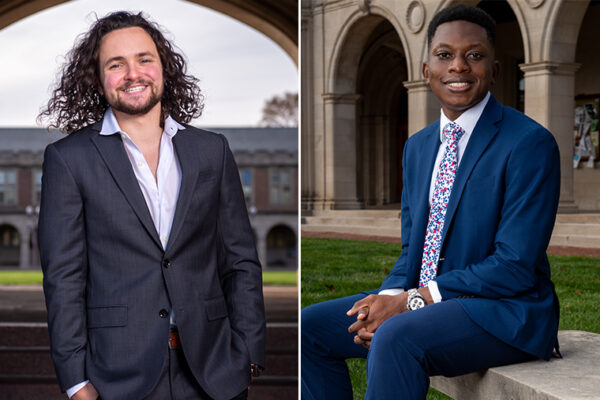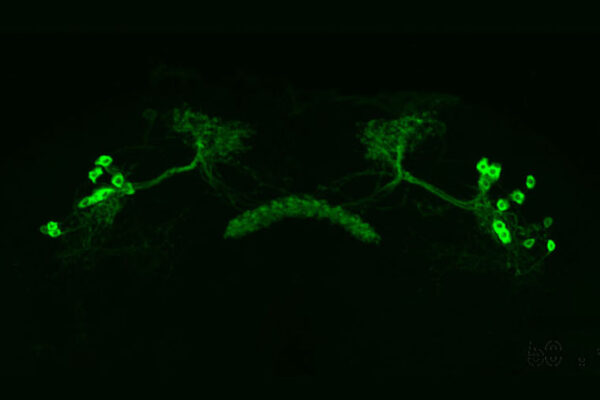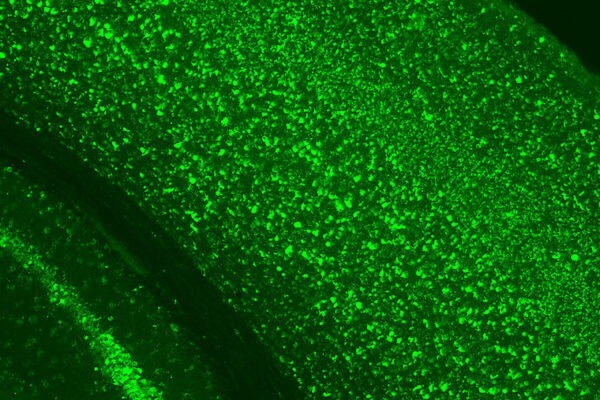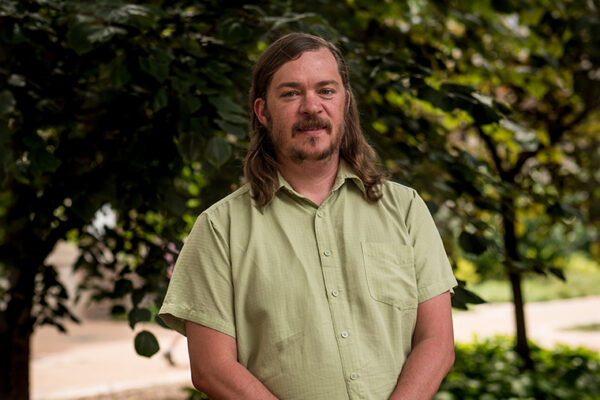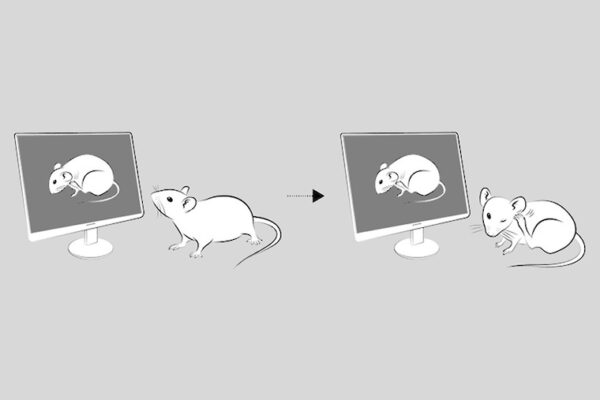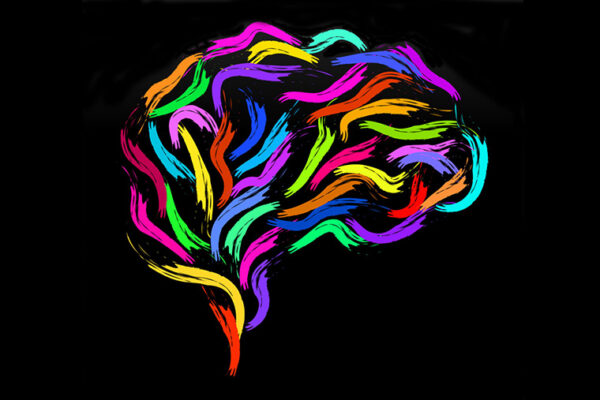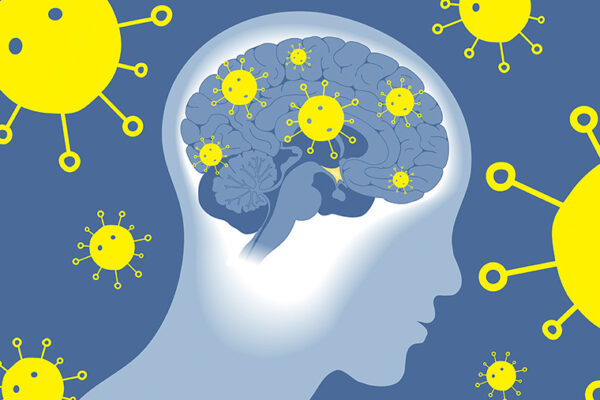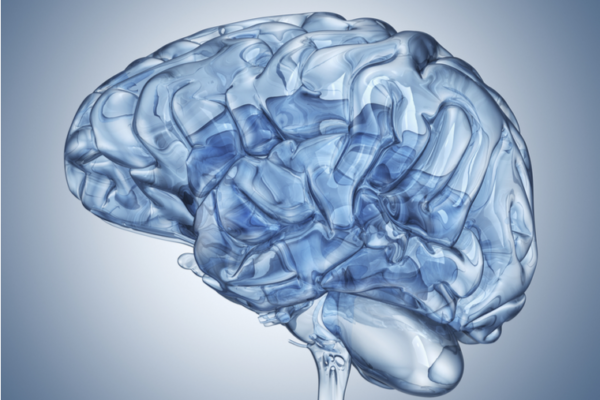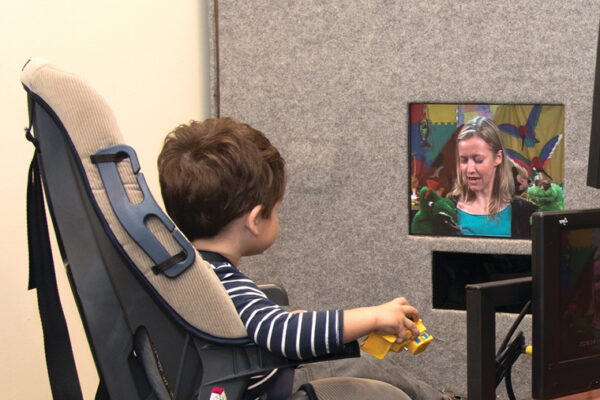Diagnostic marker found for deadly brain disease marked by dementia, movement problems
Researchers at Washington University School of Medicine have discovered a biomarker for a rare, deadly brain disease known as corticobasal degeneration (CBD). The biomarker could accelerate efforts to develop treatments for CBD.
Norwitz, Oyetunji were Rhodes Scholar finalists
Seniors Sam Norwitz and Ephraim Oyetunji, both majoring in neuroscience in Arts & Sciences, were finalists for the Rhodes Scholarship, one of the world’s most prestigious academic honors.
How do tired animals stay awake?
New School of Medicine research provides clues to falling fast asleep — or lying wide awake. Studying fruit flies, the researchers found that brain neurons adapt to help the flies stay awake despite tiredness in dangerous situations and help them fall asleep after an intense day.
Research offers clues for treating fatal neurological disorder in kids
Research in animals led by Washington University and the Roslin Institute in Scotland shows that supplying a vital missing enzyme helps to improve CLN1 disease, a rare but fatal brain disorder.
Carlson to study neuroplasticity, behavioral evolution
Bruce Carlson, professor of biology in Arts & Sciences, recently won a $980,000 grant from the National Science Foundation to study neuronal plasticity and the evolvability of animal behavior.
Scientists ID pathway that triggers mice to scratch when they see others do the same
Researchers at Washington University School of Medicine have identified a pathway in the brains of mice that is activated when the animals see other mice scratching. They found that this so-called “contagious itching” is controlled through a visual pathway that operates independently of the visual cortex.
School of Medicine joins major NIH brain mapping effort
Scientists at Washington University School of Medicine are joining a national network, supported by the National Institutes of Health (NIH) to map the intricacies of the brain, with a goal of deepening knowledge of how the brain works and generating new insights into how the brain functions in healthy people — and how it malfunctions in Alzheimer’s, schizophrenia, autism and numerous other conditions.
COVID-19 infections increase risk of long-term brain problems
A comprehensive analysis of federal data by researchers at Washington University School of Medicine shows people who have had COVID-19 are at an elevated risk of developing neurological conditions within the first year after infection.
OHMB recognizes Barch with Glass Brain Award
The Organization for Human Brain Mapping has awarded its Glass Brain Award to Deanna Barch, of Arts & Sciences and the School of Medicine, in recognition of her influential work on the function of the human brain.
Abnormal development of brain’s visual system may contribute to autism
A new study, led by researchers at Washington University School of Medicine and the University of North Carolina School of Medicine, has identified abnormalities in the development of the brain’s visual system in infants that may predispose them to developing autism.
Older Stories
